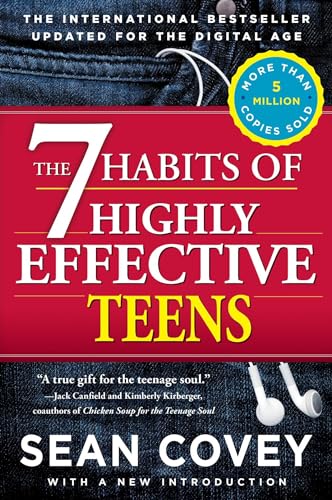Deciding whether your teen should work during school depends on how they balance responsibilities. A part-time job can teach important skills, independence, and provide extra money, but it may also cause stress or affect grades if not managed carefully. Proper planning, flexible hours, and setting limits are key to making it work. If you want to guarantee your teen benefits without falling behind, understanding how to balance work and school is essential. Keep exploring to learn more.
Key Takeaways
- Part-time jobs teach valuable skills like responsibility and time management, aiding personal growth.
- Balancing work and school can cause fatigue and impact academic performance if not managed properly.
- Flexible jobs such as retail or tutoring help teens maintain a healthy work-life balance.
- Excessive working hours may lead to stress, exhaustion, and falling behind academically.
- Proper planning and setting boundaries enable teens to benefit from work without compromising education.

Finding a part-time job as a teen can be a great way to earn money, gain work experience, and develop important skills. However, balancing work with school responsibilities isn’t always straightforward. You need to consider how a job might affect your work life balance and academic performance. While earning your own money is motivating, it’s easy to underestimate how demanding a job can be alongside schoolwork. If you’re not careful, work hours could cut into study time or lead to exhaustion, making it harder to stay focused in class or complete homework on time. That’s why it’s essential to choose a job that aligns with your schedule and priorities.
Your work life balance is key to managing both responsibilities effectively. Opt for flexible part-time roles that understand your need to prioritize school. Many teens find retail positions, babysitting, or tutoring to be manageable because they often offer adaptable hours or are less physically demanding. When you’re mindful of your limits, a part-time job can be a positive experience that teaches time management, responsibility, and independence without overwhelming you. It’s equally important to set boundaries—know when to say no to extra shifts if your school workload increases or exams are approaching. Prioritizing your academics doesn’t mean you can’t work, but it does mean you have to be strategic.
Balancing work and school requires flexible jobs, boundaries, and smart planning to succeed academically and gain valuable skills.
Regarding academic impact, a job can sometimes be a double-edged sword. On one hand, it can teach you valuable life skills like punctuality, customer service, and money management. On the other hand, working too many hours might lead to stress, fatigue, or falling behind in school. If your grades start slipping or you find yourself staying up late to finish homework, it’s a clear sign that your job’s affecting your academic performance. It’s vital to monitor how your work schedule influences your studies. Consider discussing your commitments with your parents or teachers to get their input and ensure you’re not sacrificing your education for extra income. Additionally, understanding work-life balance can help you maintain a healthy routine that supports both your studies and your job.
Ultimately, the decision to work during school depends on your ability to balance responsibilities and prioritize your education. A well-chosen part-time job can be an enriching experience that supports your personal growth, but only if you remain aware of its impact on your work life balance and academics. By planning wisely, setting limits, and staying organized, you can enjoy the benefits of employment without compromising your school success.
teen retail job flexible hours
As an affiliate, we earn on qualifying purchases.
As an affiliate, we earn on qualifying purchases.
Frequently Asked Questions
How Do Part-Time Jobs Affect Teens’ Academic Performance?
Part-time jobs can influence your teen’s academic performance by impacting student time management and potentially affecting their grades. When teens juggle work and school, they might struggle to prioritize homework or study time, leading to grade impact. However, if they manage their schedule well, a part-time job can teach valuable skills without harming their academic success. Balancing work and school requires discipline and planning to avoid negative effects on grades.
What Are the Legal Working Hour Restrictions for Teens?
Imagine a world where teens work endless hours—it’s simply impossible thanks to teen labor laws. These laws set strict work hour limits to protect your teen’s health and education. Typically, during school weeks, work is limited to 3-4 hours per day and 18-20 hours weekly. On non-school days, limits extend but still remain carefully regulated. Always check your state’s specific work hour limits to guarantee compliance and safety.
How Can Teens Balance Work and Extracurricular Activities?
To balance work and extracurricular activities, you need good time management. Prioritize your commitments and create a schedule that includes study, work, and leisure. Stick to your plan to avoid last-minute stress. Make sure to set aside time for relaxation and stress reduction, which helps you stay motivated and focused. Remember, balancing these aspects takes discipline, but it ultimately leads to a more fulfilling and less stressful school experience.
What Are the Best Types of Jobs for Teenage Students?
Ever wonder which jobs boost your teen employment and strengthen their resume? You should consider roles like retail, babysitting, or food service, as they teach teamwork, responsibility, and time management. These jobs are flexible and provide valuable experience, making your teen more marketable in the future. Isn’t it great to earn money while building skills that will help them succeed long-term? Choose jobs that align with their interests and future goals.
How Does a Part-Time Job Impact College Applications?
A part-time job can positively influence your college applications by demonstrating responsibility, time management, and work ethic, which boost your application strength. Admissions officers appreciate well-rounded students who balance work and academics. However, if your job interferes with grades or extracurriculars, it might hurt your chances. Ultimately, a carefully managed part-time job shows maturity and dedication, making you a more appealing candidate in the college admissions process.

LETURE Desktop Organizer with Drawer, Accessories Stationary Organizer Desk Caddy, Pen/Pencil/Business Card/Sticky Note Tray/Paperclip Holder Storage Box (White)
PREMIUM MATERIAL – This Stationery storage box made of environmentally friendly and non-toxic ABS material, which does not…
As an affiliate, we earn on qualifying purchases.
As an affiliate, we earn on qualifying purchases.
Conclusion
Ultimately, balancing a part-time job during school offers your teen valuable life lessons and a taste of independence. While it may slow down their free time, it gently guides them toward responsibility and maturity. With careful planning, they can enjoy the benefits without feeling overwhelmed. Remember, a well-chosen job can serve as a subtle stepping stone, helping your teen blossom into a confident, capable individual—ready to embrace the future’s many opportunities.

bloom daily planners Magnetic Chore Chart Planning Pad – Daily & Weekly Habit To Do Tracker for Adults, Teens, Kids – Family Organizer and Responsibility Reward System – 60 Sheets – 6” x 9”, Bright
DIMENSIONS: 6" wide x 9" tall x .4” thick
As an affiliate, we earn on qualifying purchases.
As an affiliate, we earn on qualifying purchases.

The 7 Habits of Highly Effective Teens
As an affiliate, we earn on qualifying purchases.
As an affiliate, we earn on qualifying purchases.









